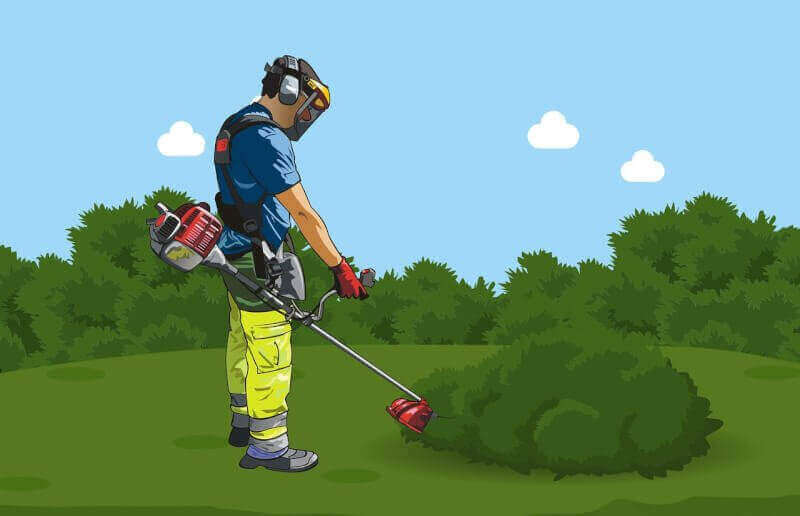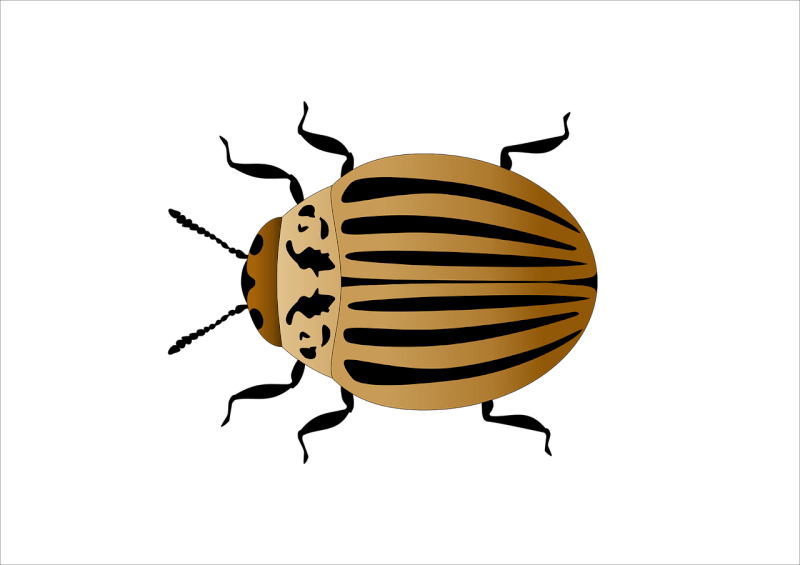In your beloved garden, there can be unwelcome guests lurking among your cherished plants – aphids and slugs. These pesky critters can wreak havoc on your vibrant greenery, leaving you frustrated and unsure of how to reclaim the beauty of your outdoor sanctuary. But fear not, for we have some friendly and effective ways to bid farewell to these garden pests, ensuring your plants thrive and flourish once again. From natural remedies to preventative measures, we’ve got you covered in your battle against these unwanted visitors. Let’s explore some simple yet powerful solutions to help you regain control of your garden and enjoy its splendor to the fullest.
Prevention
Choose pest-resistant plants
One of the best ways to prevent garden pests from wreaking havoc on your plants is to choose pest-resistant plants. These varieties have developed natural defenses against common pests and diseases, making them less attractive to harmful insects. By incorporating pest-resistant plants into your garden, you can reduce the risk of infestations and minimize the need for pest control measures.
Encourage beneficial insects
Beneficial insects, such as ladybugs, parasitic wasps, and nematodes, play a vital role in controlling garden pests naturally. These insects prey on harmful pests, helping to keep their populations in check. To attract beneficial insects to your garden, provide them with suitable habitats and food sources. Planting flowers that attract pollinators like bees and butterflies can also help attract beneficial insects.
Practice good sanitation
Maintaining good sanitation in your garden is crucial for pest prevention. Regularly remove debris, fallen leaves, and decaying organic matter that can provide hiding places and breeding grounds for pests. Pests like slugs and aphids are attracted to these conditions, so by keeping your garden clean and tidy, you make it less inviting for them.
Avoid overwatering
Overwatering your plants not only poses a risk to their health but can also create an ideal environment for pests. Excess moisture can lead to root rot and attract pests like slugs and snails. Make sure you water your plants properly, allowing the soil to dry out between watering sessions. This will help discourage pests and promote healthier plant growth.
Use mulch
Mulching your garden beds can serve as a natural barrier against pests. Organic mulch, such as straw, wood chips, or leaves, helps to suppress weed growth, retain moisture, and regulate soil temperature. Additionally, some mulch types, like cedar or eucalyptus bark, can act as natural pest repellents. The mulch creates an unfavorable environment for pest insects, reducing their ability to access your plants.
Install physical barriers
Installing physical barriers is an effective way to keep pests out of your garden. Constructing fences or netting around your garden beds can prevent larger pests like rabbits, deer, or birds from feasting on your plants. Additionally, using row covers or mesh screens can protect your crops from insects while still allowing sunlight and airflow.
Natural Remedies
Soap spray
Soap spray is a gentle and effective natural remedy for controlling garden pests. It works by suffocating soft-bodied insects like aphids, mites, and mealybugs. To make a soap spray, mix a few teaspoons of liquid dish soap with water in a spray bottle. Spray the solution directly on the affected plants, focusing on the areas with visible pest activity. Repeat as necessary to keep pests at bay.
Neem oil
Neem oil is derived from the seeds of the neem tree and has been used for centuries as a natural pesticide. It disrupts the life cycle of pests by interfering with their feeding and reproduction. Dilute neem oil with water according to the instructions on the product label and spray it onto your plants, ensuring thorough coverage. Neem oil is effective against a wide range of pests, including aphids, whiteflies, and spider mites.
Diatomaceous earth
Diatomaceous earth is a fine powder made from the fossilized remains of diatoms, a type of algae. It works by dehydrating and damaging the exoskeletons of insects. Sprinkle a thin layer of diatomaceous earth around the base of affected plants or apply it directly to pests’ hiding places. Be cautious when using diatomaceous earth, as it can harm beneficial insects as well. Use it sparingly and only as a targeted treatment.
Beer traps
Beer traps are an excellent solution for controlling slugs and snails, as these pests are attracted to the yeast and sugars in beer. Dig a small hole in the ground and bury a container, such as a shallow dish or jar, so that its rim is level with the soil. Fill the container with beer and leave it overnight. The slugs and snails will be lured into the beer trap and drown. Empty and refill the traps regularly to maintain their effectiveness.
Copper tape
Copper tape acts as a physical barrier, deterring pests like slugs and snails from reaching your plants. The tape’s reaction with moisture creates a small electric charge that repels these pests. Simply apply the copper tape around containers, raised beds, or vulnerable plant stems. Make sure the tape forms a continuous loop without any gaps for the best results. Copper tape is a safe and eco-friendly pest control option.

Chemical Control
Insecticidal soaps
Insecticidal soaps are formulated to kill soft-bodied insects like aphids, mealybugs, and whiteflies while being less harmful to beneficial insects and the environment. These soaps work by disrupting the insects’ cell membranes, causing them to dehydrate and die. Follow the product instructions carefully when applying insecticidal soap, as excessive use can harm plants and may require rinsing off the soap after application.
Horticultural oils
Horticultural oils, such as mineral oil or neem oil, suffocate or smother pest insects by coating them with a thin layer of oil. They are effective against various pests, including aphids, scales, and mites. Dilute the oil according to the product instructions and spray it onto the affected plants, ensuring thorough coverage. Avoid applying horticultural oils under extreme temperature conditions or when plants are stressed.
Pyrethroid insecticides
Pyrethroid insecticides are synthetic chemicals derived from natural compounds found in chrysanthemum flowers. They are effective against a wide range of insects and provide quick knockdown and long-lasting residual control. When using pyrethroid insecticides, carefully read and follow the label instructions to ensure safe and appropriate use. Use these insecticides sparingly and only when necessary to minimize potential harm to beneficial insects.
Slug pellets
Slug pellets contain chemical compounds that are toxic to slugs and snails. These pellets can be an effective means of controlling these pests, but caution must be exercised when using them. Follow the manufacturer’s instructions precisely, and take care to prevent the pellets from being ingested by pets or wildlife. Place the pellets strategically around susceptible plants, taking care to keep them out of reach from children and animals.
Biological Control
Ladybugs
Ladybugs, also known as lady beetles, are voracious predators of aphids and other soft-bodied insects. Encouraging a population of ladybugs in your garden can significantly help control aphid infestations. Ladybugs can be attracted by planting flowers such as marigolds, daisies, and yarrow, which provide a source of food for both adult ladybugs and their larvae. Ladybugs can also be purchased and released into your garden to kickstart their presence.
Parasitic wasps
Parasitic wasps are tiny wasps that lay their eggs inside or on pests, such as aphids, caterpillars, or whiteflies. The wasp larvae then feed on the pest, eventually killing it. Encourage parasitic wasps by planting flowers like dill, fennel, or yarrow, which provide nectar for adult wasps. Avoid using broad-spectrum insecticides, as they can harm beneficial insects like parasitic wasps.
Nematodes
Beneficial nematodes are microscopic roundworms that can actively seek out and kill pests in the soil, including grubs, caterpillars, and weevils. They enter the pest’s body and release bacteria, which then multiply and cause disease, ultimately killing the pest. Apply nematodes by mixing them with water and spraying them onto the soil surface or applying them directly to the affected plants. Make sure to follow the package instructions for proper application and storage.

Organic Pest Control
Companion planting
Companion planting involves growing certain plants together to naturally repel pests or attract beneficial insects. For example, planting marigolds alongside your tomatoes can deter aphids, while growing basil near cucumbers can help repel pests like whiteflies. Research suitable companion plants for your desired crops and incorporate them into your garden to maximize pest control benefits.
Crop rotation
Crop rotation is the practice of changing the location of crops within your garden each growing season. This technique helps break the life cycle of pests and diseases that may have built up in the soil. By rotating crops, you can reduce the risk of pest infestations and limit the need for chemical pesticides. Plan your crop rotation carefully, taking into account the specific pest vulnerabilities of each plant family.
Beneficial nematodes
As discussed earlier, beneficial nematodes can be a valuable addition to your organic pest control efforts. These microscopic worms feed on pests in the soil, effectively reducing their populations. Incorporate beneficial nematodes into your garden by applying them to the soil as a targeted treatment. Remember to follow the instructions provided with the nematodes for best results.
Using Traps
Yellow sticky traps
Yellow sticky traps are adhesive sheets or cards that attract and capture flying insects like aphids, whiteflies, and fungus gnats. The bright yellow color attracts the pests, and the sticky surface prevents them from escaping. Hang the traps near affected plants, making sure they are at the same height as the plants’ foliage. Check the traps regularly and replace them when they become covered with pests or lose their stickiness.
Beer traps
Beer traps, mentioned earlier as a natural remedy for slugs and snails, can also be used as traps to monitor and control other pests like earwigs or beetles. Simply bury containers filled with beer in the ground, ensuring the rim is level with the soil. The pests will be attracted to the beer and fall into the trap, where they will drown. Regularly check and empty the traps as needed.
Slug barriers
Slug barriers, such as copper tape or specialized plastic collars, create physical barriers that prevent slugs and snails from reaching your plants. Place them around vulnerable plant stems or container edges, ensuring there are no gaps for the pests to sneak through. Slug barriers provide a simple and effective solution for protecting your plants from these notorious garden pests.

Physical Removal
Handpicking
For larger pests like caterpillars, beetles, or snails, handpicking is a labor-intensive but effective method of control. Wear gloves and remove the pests by hand, either crushing them or relocating them away from your garden. Regular inspections of your plants can help you identify and remove pests before they cause significant damage. Handpicking is particularly suitable for smaller gardens or when only a few pests are present.
Water jet
Using a strong jet of water, such as from a hose nozzle attachment or a pressure sprayer, can dislodge pests like aphids or spider mites from plant leaves. Aim the water at affected areas, making sure to cover both the upper and lower leaf surfaces. The force of the water should be enough to knock off the pests without harming your plants. Repeat this method as necessary to keep pest populations under control.
Pruning
Pruning affected plant parts can help remove pests, fungus, or disease-infested areas. Use clean, sharp pruning shears and make cuts just above healthy growth or a leaf node. Dispose of the pruned material away from your garden to prevent the spread of pests or diseases. Pruning not only eliminates existing pest problems but also promotes better airflow and healthy plant growth.
Attracting Predators
Bird feeders
Attracting birds to your garden can be an effective way to control pests. Birds, such as chickadees, titmice, and sparrows, feed on a variety of insects, including caterpillars, beetles, and aphids. Install bird feeders with a variety of birdseed to attract a diverse range of bird species. Make sure to maintain the feeders regularly, provide fresh water, and create suitable habitat for nesting and resting.
Hedgehogs
Hedgehogs are natural predators of slugs, snails, and other garden pests. By providing shelter and food sources, such as shallow dishes of water and pet food or meat-based cat food, you can encourage hedgehogs to visit and reside in your garden. Avoid using slug pellets or other chemical pesticides that may harm hedgehogs or their food sources. Hedgehogs are nocturnal animals, so remember to consider their needs when planning your garden layout.
Frog and toad houses
Frogs and toads are excellent predators of insects and slugs. By providing frog and toad houses, which are sheltered spots for these amphibians to rest during the day, you create a welcoming environment for them in your garden. Make or purchase a small habitat with small entrances and place it in a shady, moist area. Amphibians will help keep pests in check while adding charm and diversity to your garden.

Maintaining Healthy Soil
Amending soil
Amending your garden soil with organic matter helps improve its structure, nutrient content, and water-holding capacity. Well-draining soil that is rich in organic matter creates healthier plants that are more resilient to pests and diseases. Add compost, well-rotted manure, or other organic amendments to your soil annually or as needed to maintain its fertility and health.
Maintaining proper pH
Different plants thrive in specific pH ranges, and maintaining proper soil pH can enhance plant health and deter pests. Test your soil’s pH using a kit or by sending a sample to a soil testing laboratory. Depending on the results, adjust the pH by adding lime to raise it or sulfur to lower it. By providing plants with their preferred pH levels, you create optimal growing conditions and discourage pest infestations.
Adding organic matter
Continually adding organic matter, such as compost, to your garden beds helps improve soil structure, fertility, and moisture-holding capacity. Organic matter promotes beneficial microbial activity in the soil, moderates pH levels, and enhances nutrient availability for plants. Moreover, healthy soil supports strong plant growth, making them less susceptible to pest attacks. Regularly incorporate organic matter into your garden to maintain healthy soil conditions.
Professional Assistance
Consulting an entomologist
If you are facing persistent pest problems or need specific guidance on managing a particular infestation, consulting an entomologist can be highly beneficial. Entomologists are experts in the study of insects and can provide valuable insights into pest identification, biology, and control methods. They can recommend appropriate pest control strategies tailored to your garden’s unique environment and help you develop an integrated pest management (IPM) plan.
Hiring a certified pest control professional
In cases where pest infestations become overwhelming or conventional control methods prove ineffective, hiring a certified pest control professional may be necessary. These professionals have the knowledge, expertise, and access to specialized equipment and products to effectively address severe pest issues. They can assess the situation, develop a targeted treatment plan, and safely administer pest control measures while adhering to all applicable regulations and guidelines.
By implementing a combination of prevention strategies, natural remedies, organic pest control methods, and attracting beneficial predators, you can effectively manage garden pests like aphids and slugs while maintaining a healthy and thriving garden. Remember to prioritize environmentally friendly approaches and consider the overall health and balance of your garden ecosystem. With diligence and care, you can keep garden pests at bay and enjoy the fruits of your labor.

